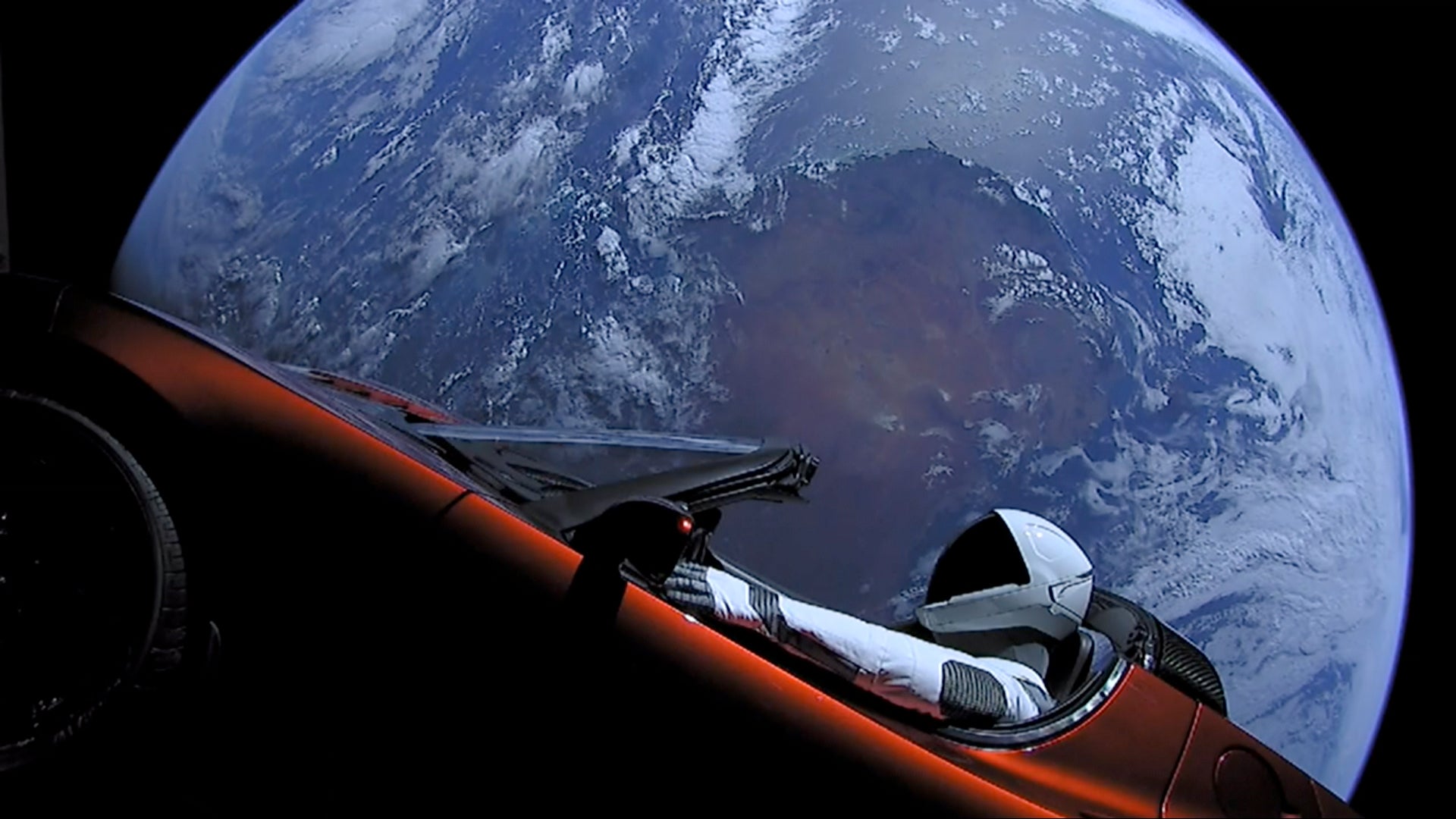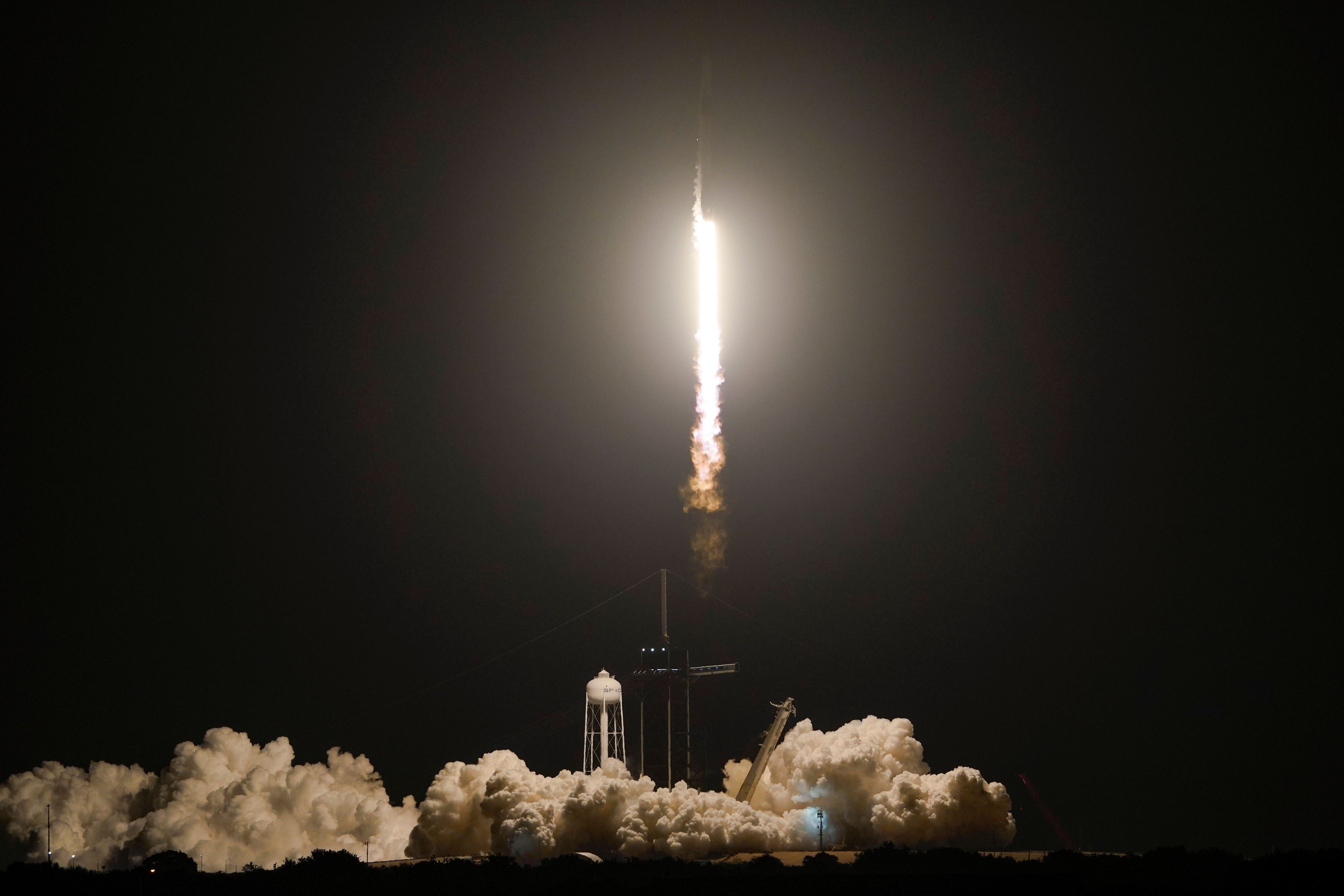Here’s how many billions Elon Musk’s companies are making from U.S. taxpayers
While their boss takes a sledgehammer to federal agencies, SpaceX and Tesla are earning big money from government contracts, writes Io Dodds
Your support helps us to tell the story
From reproductive rights to climate change to Big Tech, The Independent is on the ground when the story is developing. Whether it's investigating the financials of Elon Musk's pro-Trump PAC or producing our latest documentary, 'The A Word', which shines a light on the American women fighting for reproductive rights, we know how important it is to parse out the facts from the messaging.
At such a critical moment in US history, we need reporters on the ground. Your donation allows us to keep sending journalists to speak to both sides of the story.
The Independent is trusted by Americans across the entire political spectrum. And unlike many other quality news outlets, we choose not to lock Americans out of our reporting and analysis with paywalls. We believe quality journalism should be available to everyone, paid for by those who can afford it.
Your support makes all the difference.Elon Musk is on a crusade against government spending. Unless, apparently, it's going to him.
"If action is not taken to curb the deficit, America is in deep trouble. No different than a person who gets into too much debt," said the DOGE boss on his social network X in December.
"The corruption and waste is being rooted out in real-time," he added on February 2, as he took a sledgehammer to federal agencies and all but dismantled the U.S. Agency of International Development with no authorization from Congress.
Yet according to federal data analyzed by The Independent, Musk's own companies have been promised or awarded nearly $21 billion by the U.S. government since 2008.
The cash was still flowing as of Feb 17, with another $76.7 million promised since Donald Trump's inauguration.
So how much of money is the American taxpayer forking over to each of Musk's companies, and what is it all for?
Flying NASA to the moon
The vast majority of this funding comes from federal contracts with SpaceX, the private space company Musk founded back in 2002.
According to USASpending.gov, a legally-mandated public database of federal contracts, the most common way to measure such contracts is to look at the total amount the U.S. government is contractually obliged to pay out. So that is what we'll do.
Since records began, SpaceX has been promised nearly $20.7 billion in government contracts, research grants, and other forms of public assistance, with roughly $8.7 billion actually paid out so far.
Of that promised money, $14.6 billion came from contracts with NASA, covering everything from supply runs to the International Space Station to the design and testing of a new moon lander.
One contract covers launch services for various NASA satellites, while another covers cargo flights to the agency's planned Lunar Gateway space station, which will be put in orbit around the moon to support future visits.
Perhaps the most exciting is a contract to safely destroy the International Space Station when it is abandoned some time after 2030. The company is building a souped-up version of its Dragon crew capsule, which will use its powerful engine to push the station into a declining orbit that will ultimately cause it to burn up in Earth's atmosphere.
And while $14.6 billion might seem like a nice payday, that's nothing to the maximum payout that SpaceX could get in future if NASA chooses to exercise all options in every contract: a whopping $56.4 billion.

Secretive DoD satellite launches
The bulk of the rest of SpaceX's contracts are with the Department of Defense, which has promised $5.6 billion and offered a maximum future payout of $32.8 billion.
Perhaps characteristically given their military nature, these contracts' descriptions are rather more vague. Most of them involve satellite launches, including for the country's secretive National Reconnaissance Office.
Indeed, reports indicate that SpaceX is under contract to build hundreds of spy satellites with an unnamed U.S. intelligence agency.
Other payments relate to SpaceX's subsidiary Starlink, which provides mobile internet services to remote regions from a constellation of more than 7,000 satellites in low Earth orbit.
Here we find an example of Musk's penchant for corny acronyms: a U.S. Air Force contract for a "basic agreement for devices and Starlink subscription", or BADASS for short.
On top of various research grants, SpaceX also has contracts with other U.S. agencies, though these are vastly smaller. The company is owed $1.4 million by the Department of Commerce, for instance, and $578,875 by the Department of Veterans Affairs.
Most of the contracts cover Starlink services, including for ocean research ships away from port, workers repairing a bridge in Yellowstone National Park, and U.S. Geological Survey officials in Anchorage, Alaska.
Starlink was also promised around $2.3 million in government assistance by USAID — an agency Musk has called "evil" and "a criminal organization" that needs to "die" — apparently as part of an infrastructure program in Macedonia.

Tesla brings up the rear
Tesla, the electric vehicle company that Musk also runs, has made far less from government contracts and awards. USASpending.gov lists only $4.5 million, mostly for solar power generation or the purchase of government vehicles.
However, the firm has benefited significantly from other kinds of taxpayer help in the past. In 2010, when it had sold fewer than 2,000 cars, it got a $465 million low-interest loan from the Department of Energy to help it develop new electric vehicles.
Tesla has also benefited from at least an estimated $3.4 billion in tax credits given to its customers in order to buy its cars, allowing the company to sell more vehicles at higher prices than otherwise would have been possible.
Famously, it has made much of its profit — $10.7 billion, by one recent estimate — from selling emissions credits to other, more polluting carmakers. These aren't paid for by taxpayers, but they are mandated by government regulations.
According to reports, a $400 million contract for "armored electric vehicles" is in the works — though after the story broke, its wording was amended to avoid specifically mentioning Tesla.
What does SpaceX say?

To be clear, Musk’s companies — SpaceX and Tesla have been asked for comment for this story — are providing real services to the U.S. government, and those services cost money.
When four astronauts were stranded on the International Space Station following problems with Boeing's rival Starliner capsule in 2024, SpaceX was contracted to bring them back. For a time, it was the only U.S. entity capable of ferrying human beings to and from the ISS.
"We earned that," said SpaceX's chief operations officer Gwynne Shotwell in November 2024, in reference to SpaceX's close relationship with NASA. "We bid it, we were the lowest price, best bidder, we won and we execute. It's not a bad thing to serve the U.S. government with great capability and products."
But that doesn't exempt Musk from conflict of interest laws, especially given that some of the agencies he is targeting are in the middle of investigating his companies.
Musk has also been incredibly broad in his definition of "waste, fraud, and abuse", often completely misrepresenting the programs he spotlights on social media.
For example, he has attacked media companies such as Politico for selling subscription services to government agencies — not unlike SpaceX — and falsely claimed that a DoD contract with Reuters to help resist cyberattacks was a contract to deceive the U.S. public.

But don't worry. According to the White House, it's Musk himself who'll decide whether or not his own business dealings cause a conflict of interest.
Join our commenting forum
Join thought-provoking conversations, follow other Independent readers and see their replies
Comments